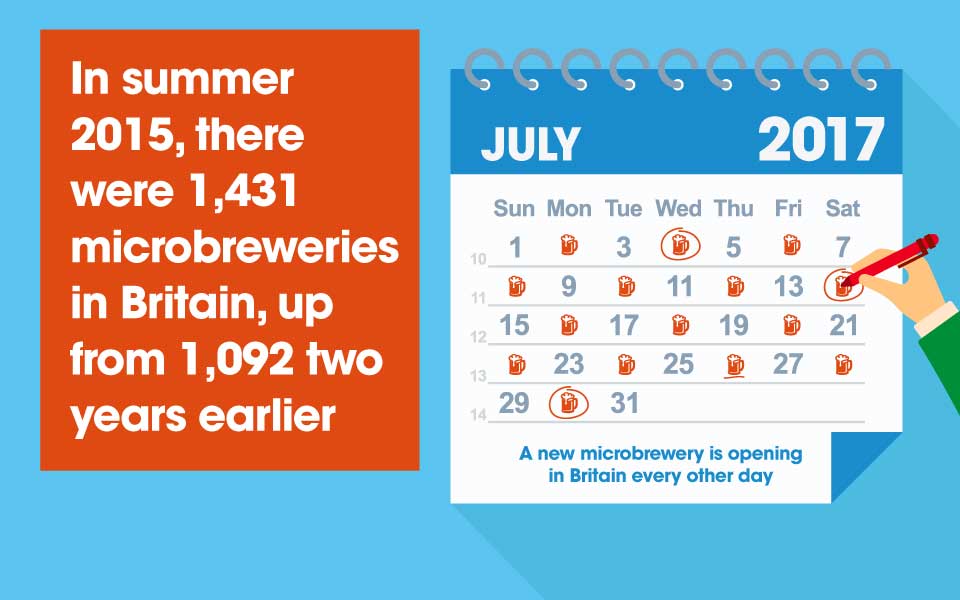If you have any questions about your Business Insurance, speak to the Swinton Business team today.
Beverage manufacturing
The food and drink industry is a core element of the UK manufacturing economy, representing over 15% of manufacturing turnover and employment. The beverage category, in particular, has been spearheading the growth in the sector, largely thanks to the
growing trend for craft beer.
Key insights
From 2010 to 2017, the number of businesses manufacturing beverages has grown significantly, from 1,155 to 2,270 – that's a massive 97% increase!
In summer 2015, there were 1,431 microbreweries in Britain, up from 1,092 two years earlier. According to the UK government, a new microbrewery has been opening in Britain "every other day". To a large extent, this steep rise in the number of microbreweries has been driven by a shift in Britain's drinking culture.

It’s quickly become fashionable, particularly for millennials, to drink craft beer sourced locally and entrepreneurs have responded by ensuring that demand is catered for.
Craft cider is also proving popular, with manufacturers moving away from traditional concoctions using apples, instead experimenting with different types of fruits. This has resulted in a greater variety for consumers to choose from.
The foundation of new small-batch gin distilleries has also mirrored the growth in microbreweries at a lower level, along with an upturn in production of premium mixers, such as tonic water.
There has been even greater growth in the City of Westminster, where businesses producing beverages have increased by 400%
The non-alcoholic beverage sector has also benefited from growing demand for healthier drinks, like smoothies, juices and waters, as well as low-calorie and low-sugar drinks.
Looking at specific regions of the UK, London leads the way in beverage manufacturing businesses, with numbers increasing by 382%. In the south London borough of Wandsworth alone, numbers have grown by 300% – this can partly be attributed to its seven notable breweries, including Belleville Brewing Co., which produces US-style craft beer.
There has been even greater growth in the City of Westminster, where businesses producing beverages have increased by 400%. One of its most well-known areas, the West End, is renowned for its nightlife – particularly Soho. It's quite fitting, then, that the area is home to the company that created 'The King of Soho' gin, which was designed to celebrate Soho's vibrant spirit.
It's not just the capital that has seen success in beverage production: Winemaking has really taken off in the South East in recent years, with an increasing number of vineyards popping up in places like Winchester and Wealden, which have both seen beverage manufacturing businesses grow by 200%.
In the North East, the city of Newcastle upon Tyne has seen numerous breweries opening, which has contributed to a 200% increase in beverage manufacturing businesses. This has been reflected throughout the North East overall, where there's been a slightly slower – but still very impressive – growth of 133%.
What does the future hold?
Going forward, automation holds great potential to boost productivity in the beverage manufacturing sector, especially with the developments in robotics and artificial intelligence.
There is also a growing trend towards craft soft drinks aimed at the adult market, including sodas, colas and ginger beers.
For further information on the sourced references for the Business Trends data, outside of the Business Population Estimates 2017 and Nomis official labour market statistics 2010 and 2017, please download the information here (PDF, 233MB)